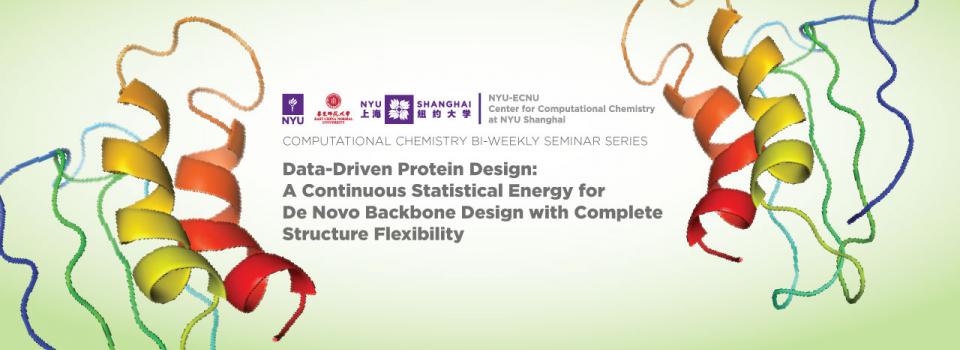
Abstract:
To a very large extent, the task of designing de novo proteins can be divided into two subtasks. One is to identify backbone structures of high designability. The other is to determine amino acid sequences that are compatible with the respective backbones. Previously, we have already developed a statistical energy model, ABACUS, to carry out the subtask of sequence design. Here we present a statistical energy model to execute the subtask of structure design. The model comprises descriptions of sidechain type-independent peptide local conformation and through-space backbone packing. When amino acid sequences are partially or fully determined, the model also integrates descriptions of intra-residue conformations and inter-residue atomic-packing. The various energies have been statistically derived from the database of native protein structures. Further, we use neural network regression to summarize the dependences of such energies on complex conformational coordinates into continuous functions with analytical derivatives. The resulting energy model combined with established molecular simulation techniques, the conformation of de novo backbones together with partially or fully specialized side chains can be sampled and/or optimized with complete structure flexibility.
Biography:
Haiyan Liu graduated from the University of Science and Technology of China, majored in Biology. He received his B.S. degree in 1990 and Ph.D. degree in 1996. Between 1993 and 1995 he was a visiting graduate student in Laboratory of Physical Chemistry, ETH-Zurich. Between 1998 and 2000, he was a Post-doctoral Research Associate in Department of Chemistry, Duke University and Department of Biochemistry and Biophysics, UNC-Chapel-Hill. Since 2001, he is a Professor in School of Life Sciences, University of Science and Technology of China. His main research interests are methods and applications of protein simulations and protein design.
Bi-Weekly Seminar Series by the NYU-ECNU Center for Computational Chemistry at NYU Shanghai


